1. Why Japanese Fear America forever?
You should not worry about what your friend Steve thinks of your command of the barbaric English language. I am confident it is better than his command of any civilized Asian tongue. He might oughta grant you great respect for that reason!
I am old, and believe war comes, and doubt that I will long survive in such events, as I will prefer to die than be subjugated to this or that overlord, and in a war such is easily arranged. So, I do not work towards my own felicity, my own wealth, nor even my own freedom. I am committed to those of my sons, and the good people they will rely on, that will aid and abet their struggles for their prosperity, freedom, and good fortune.
I live for our posterity, that they will seize the stars to develop them as they will, in absolute freedom, and create inconceivable wealth and felicity they will enjoy in the good company of their peers, in perpetuity.
You are kind to flatter me and call me genius, but in truth I am only dogged, and persist in wrestling with questions until I am satisfied I understand the answers. Younger people than I, like yourself, will take understanding and push the tools they have to fulfill the prophecies of ancient seers that have foreseen these days, and the hazards and opportunities at our fingertips that will create the abundant life that will be forever increased as good people create paradise from the barren wastes of the vast universe before us.
That is all I seek, all I work to achieve, and I know that I will succeed in that goal only long after I am but a memory, or forgotten, inconsequential to them that build that future paradise. I hope you know that great success lies before you, if you but reach out and seize it.
Excellent and great sentences of genius @valued-customer always give me admiration and pain!😅
His excellent English sentences will be understood by American college graduates!
I thought for a long time what a great reply I should write to him!
I felt that with my current conversational skills in English, I could not write good English sentences that would satisfy him!
However, I decided to take on a reckless challenge!
I will tell you first that I can speak English at the level of an American elementary school student!
Since childhood, I have been taught American and European history and international geopolitics from Japanese overlords.
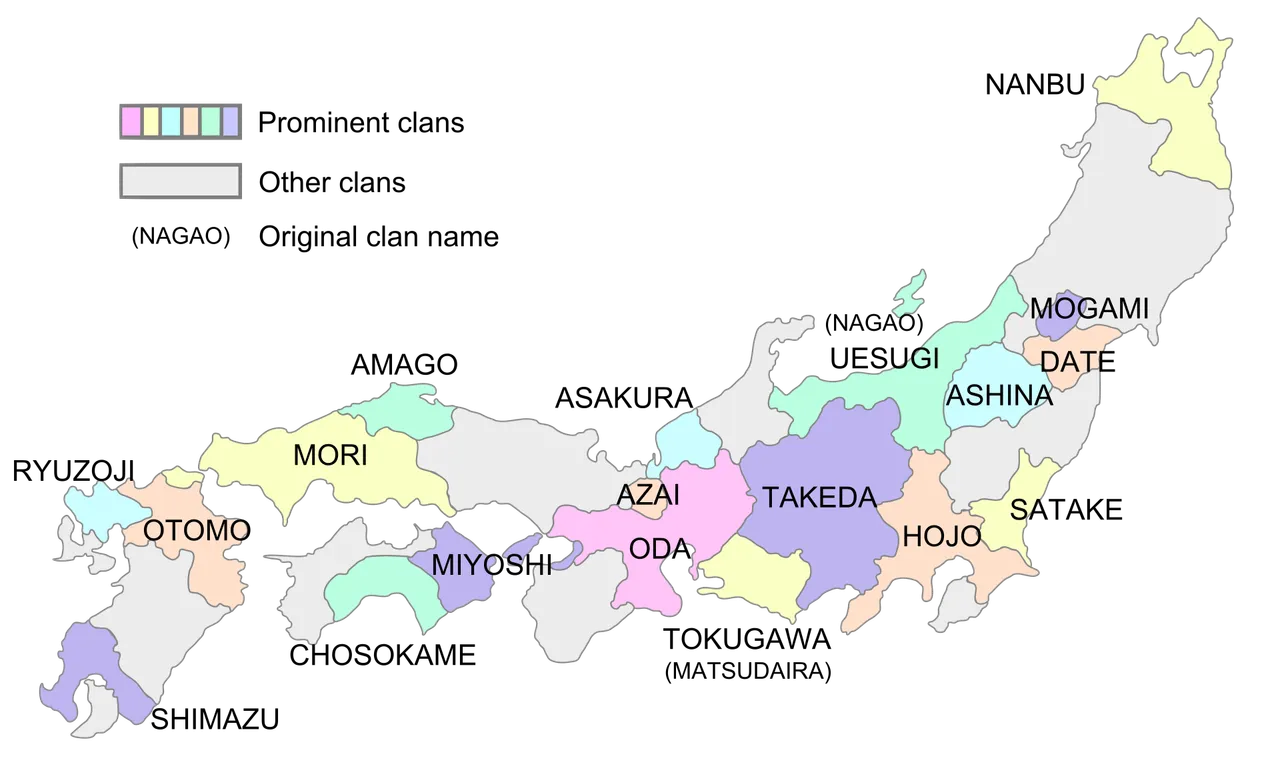 A map of the territories of the Sengoku daimyos around the first year of the Genki era (1570 AD).
A map of the territories of the Sengoku daimyos around the first year of the Genki era (1570 AD).
Daimyo (大名, daimyō, Japanese pronunciation: [daimʲoː] (listen)) were powerful Japanese magnates,[1] feudal lords[2] who, from the 10th century to the early Meiji period in the middle 19th century, ruled most of Japan from their vast, hereditary land holdings. They were subordinate to the shogun and nominally to the emperor and the kuge. In the term, dai (大) means 'large', and myō stands for myōden (名田), meaning 'private land'.[3]
From the shugo of the Muromachi period through the Sengoku to the daimyo of the Edo period, the rank had a long and varied history. The backgrounds of daimyo also varied considerably; while some daimyo clans, notably the Mōri, Shimazu and Hosokawa, were cadet branches of the Imperial family or were descended from the kuge, other daimyo were promoted from the ranks of the samurai, notably during the Edo period.
Daimyo often hired samurai to guard their land, and they paid the samurai in land or food as relatively few could afford to pay samurai in money. The daimyo era ended soon after the Meiji Restoration with the adoption of the prefecture system in 1871.
Japanese overlords and warlords were called Daimyo (大名, daimyō, Japanese pronunciation: [daimʲoː] (listen)).
I will call the overlords of Japan that my respected senior @valued-customer loves from now on Daimyo (大名, daimyō, Japanese pronunciation: [daimʲoː] (listen))! 😆
I believe Americans will remember Japanese swordsmen called samurai!
The Daimyo (大名, daimyō, Japanese pronunciation: [daimʲoː] (listen)) maintained their power by hiring samurai in exchange for money and territory.
Their relationship had many similarities to the feudal system of medieval Europe.
This is a list of Japanese clans.
This is a list of Japanese clans. The old clans (gōzoku) mentioned in the Nihon Shoki and Kojiki lost their political power before the Heian period, during which new aristocracies and families, kuge, emerged in their place. After the Heian period, the samurai warrior clans gradually increased in importance and power until they came to dominate the country after the founding of the first shogunate.
The Daimyo (大名, daimyō, Japanese pronunciation: [daimʲoː] (listen)) and their relationship with the samurai still form the basis of modern Japanese society.
The situation in the world I live in is similar!
I hope Steve and @valued-customer won't be disappointed with my low social status!😂
The Daimyo (大名, daimyō, Japanese pronunciation: [daimʲoː] (listen)) foresaw a future war with the civilian @valued-customers of the New World.
So they felt they should first study the European ancestors of @valued-customers.
The Daimyo (大名, daimyō, Japanese pronunciation: [daimʲoː] (listen)) felt that Napoleon, who took advantage of the French Revolution to become emperor, was similar to them.
They thought the French had started the French Revolution by imitating the American Revolution.
However, the fact that Napoleon used the French Revolution to build the French Empire and become emperor was very attractive!
The Congress of Vienna[1] of 1814–1815 was a series of international diplomatic meetings to discuss and agree upon a possible new layout of the European political and constitutional order after the downfall of the French Emperor Napoleon Bonaparte.[2] Participants were representatives of all European powers and other stakeholders, chaired by Austrian statesman Klemens von Metternich, and held in Vienna from September 1814 to June 1815.
The objective of the Congress was to provide a long-term peace plan for Europe by settling critical issues arising from the French Revolutionary Wars and the Napoleonic Wars through negotiation. The goal was not simply to restore old boundaries, but to resize the main powers so they could balance each other and remain at peace, being at the same time shepherds for the smaller powers. More generally, conservative leaders like von Metternich also sought to restrain or eliminate republican, liberal, and revolutionary movements which, from their point of view, had upended the constitutional order of the European ancien régime, and which continued to threaten it.
At the negotiation table, the position of France was weak in relation to that of Britain, Prussia, Austria and Russia, partly due to the military strategy of its dictatorial leader over the previous two decades and his recent defeat. In the settlement the parties did reach, France had to give up all its recent conquests, while the other three main powers made major territorial gains. Prussia added territory from smaller states: Swedish Pomerania, most of the Kingdom of Saxony, and the western part of the former Duchy of Warsaw. Austria gained much of northern Italy. Russia added the central and eastern part of the Duchy of Warsaw. All agreed upon ratifying the new Kingdom of the Netherlands, which had been created just months before from formerly Austrian territory.
The immediate background was Napoleonic France's defeat and surrender in May 1814, which brought an end to 23 years of nearly continuous war. Remarkably, negotiations continued unaffected despite the outbreak of fighting triggered by Napoleon's return from exile and resumption of power in France during the Hundred Days of March to July 1815. The Congress's agreement was signed nine days before Napoleon's final defeat at Waterloo on 18 June 1815.
Some historians have criticised the outcomes of the Congress for causing the subsequent suppression of national, democratic, and liberal movements,[3] and it has been seen as a reactionary settlement for the benefit of traditional monarchs. Others have praised the Congress for protecting Europe from large widespread wars for almost a century.
The way European overlords dealt with @valued-customers in Europe after the French Revolution was also very appealing.
The Daimyo (大名, daimyō, Japanese pronunciation: [daimʲoː] (listen)) was very moved by the appearance and conduct of European overlords at The Congress of Vienna!
The sight of European overlords gathering at The Congress of Vienna to deal with @valued-customer was very appealing to them.
European overlords enjoyed the French language, manners, and dress used at Versailles palace dances.
The Daimyo (大名, daimyō, Japanese pronunciation: [daimʲoː] (listen)) thought they could gain the respect of Europeans and Americans by imitating the language, dress, manners, and dances of the French court!
Americans envy the language, manners and dances of the French court!
The Daimyo (大名, daimyō, Japanese pronunciation: [daimʲoː] (listen)), beloved by @valued-customer, came to this surprising conclusion! 🤣
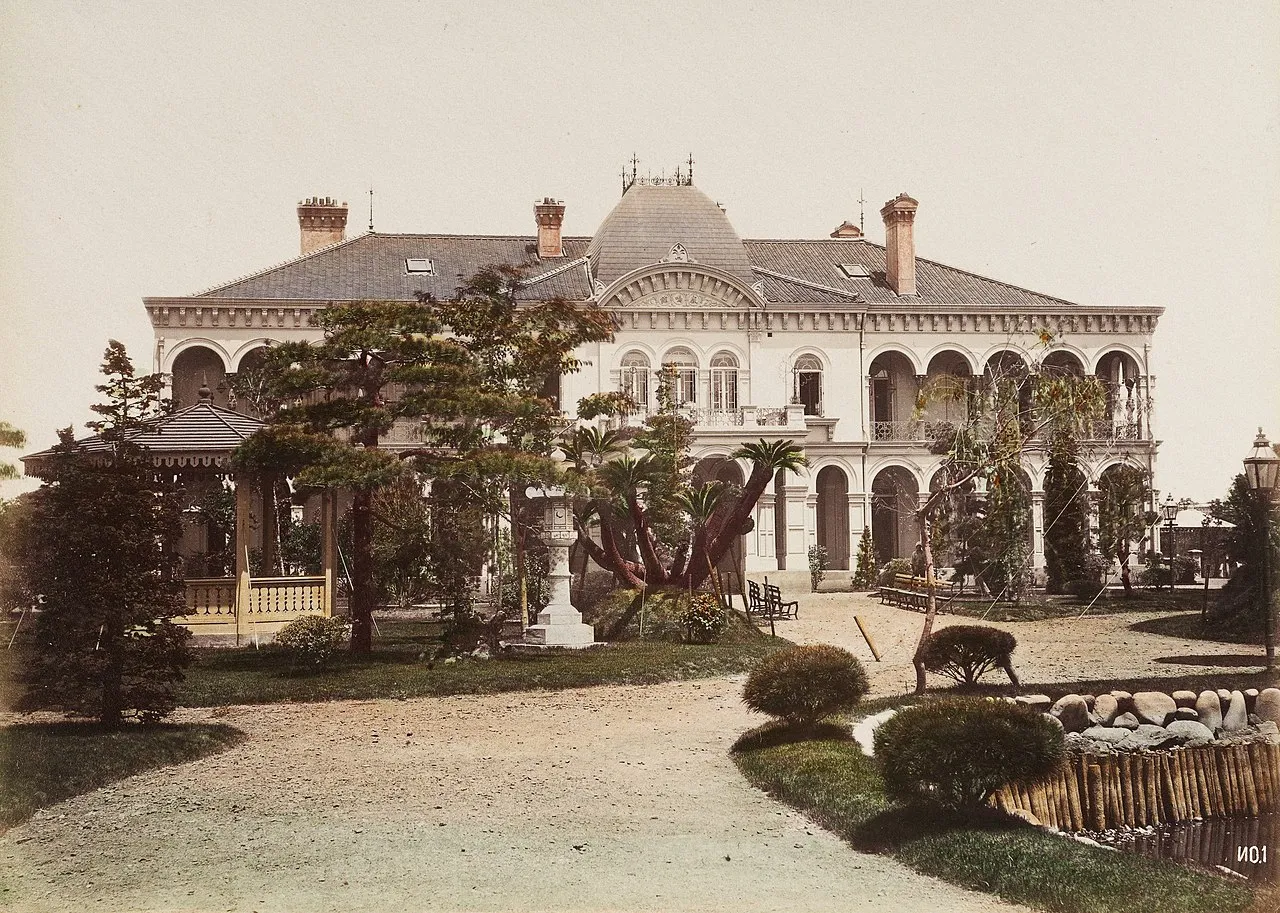 The Rokumeikan around 1883–1900, Tokyo
The Rokumeikan around 1883–1900, Tokyo
The Rokumeikan (鹿鳴館, "Banqueting House") was a large two-story building in Tokyo, completed in 1883, which became a controversial symbol of Westernisation in the Meiji period. Commissioned for the housing of foreign guests by the Foreign Minister Inoue Kaoru, it was designed by British architect Josiah Conder, a prominent Western adviser working in Japan.
Although the Rokumeikan's heyday was brief, it became famous for its parties and balls, which introduced many high-ranking Japanese to Western manners for the first time, and it is still a fixture in the cultural memory of Japan. It was, however, largely used for the accommodation of guests of the government, and for meetings between Japanese who had already lived abroad. Its reputation as a center of dissipation is largely exaggerated.
The Rokumeikan (鹿鳴館, "Banqueting House") was built to teach Japanese royalty and aristocrats the dance, language and manners of the Palace of Versailles.
The Rokumeikan (鹿鳴館, "Banqueting House") later exerted enormous influence on Chinese and Korean royalty and aristocrats.
So, current East Asian overlords envy and want to imitate European overlords!
The Daimyo (大名, daimyō, Japanese pronunciation: [daimʲoː] (listen)) believed that impersonating French royalty and nobility would earn the respect of a @valued-customer! 😆
I hope my respected seniors Steve and @valued-customer are not offended by my rude and barbaric English!🙏


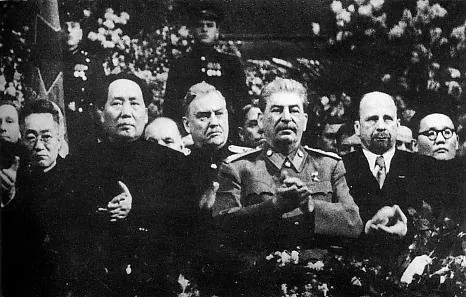
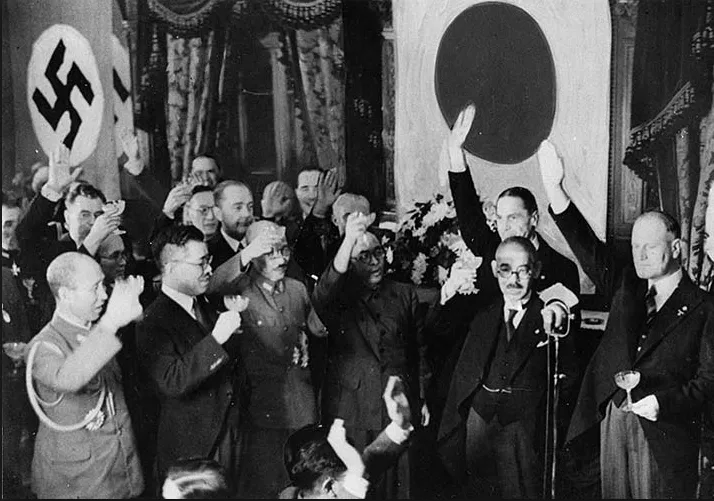
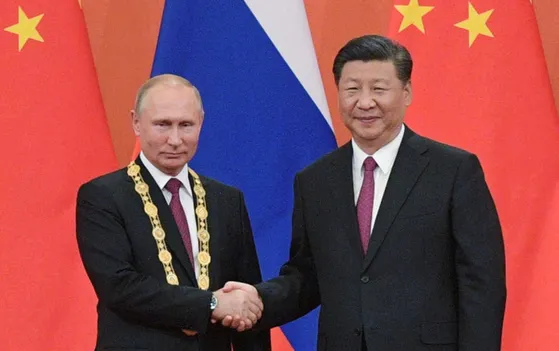
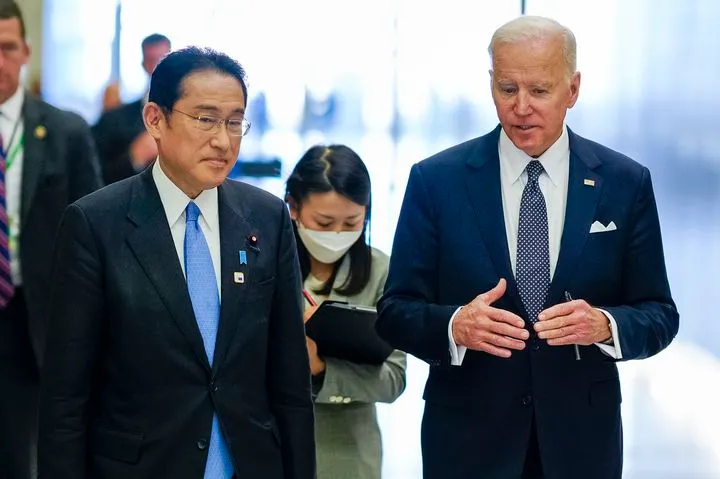
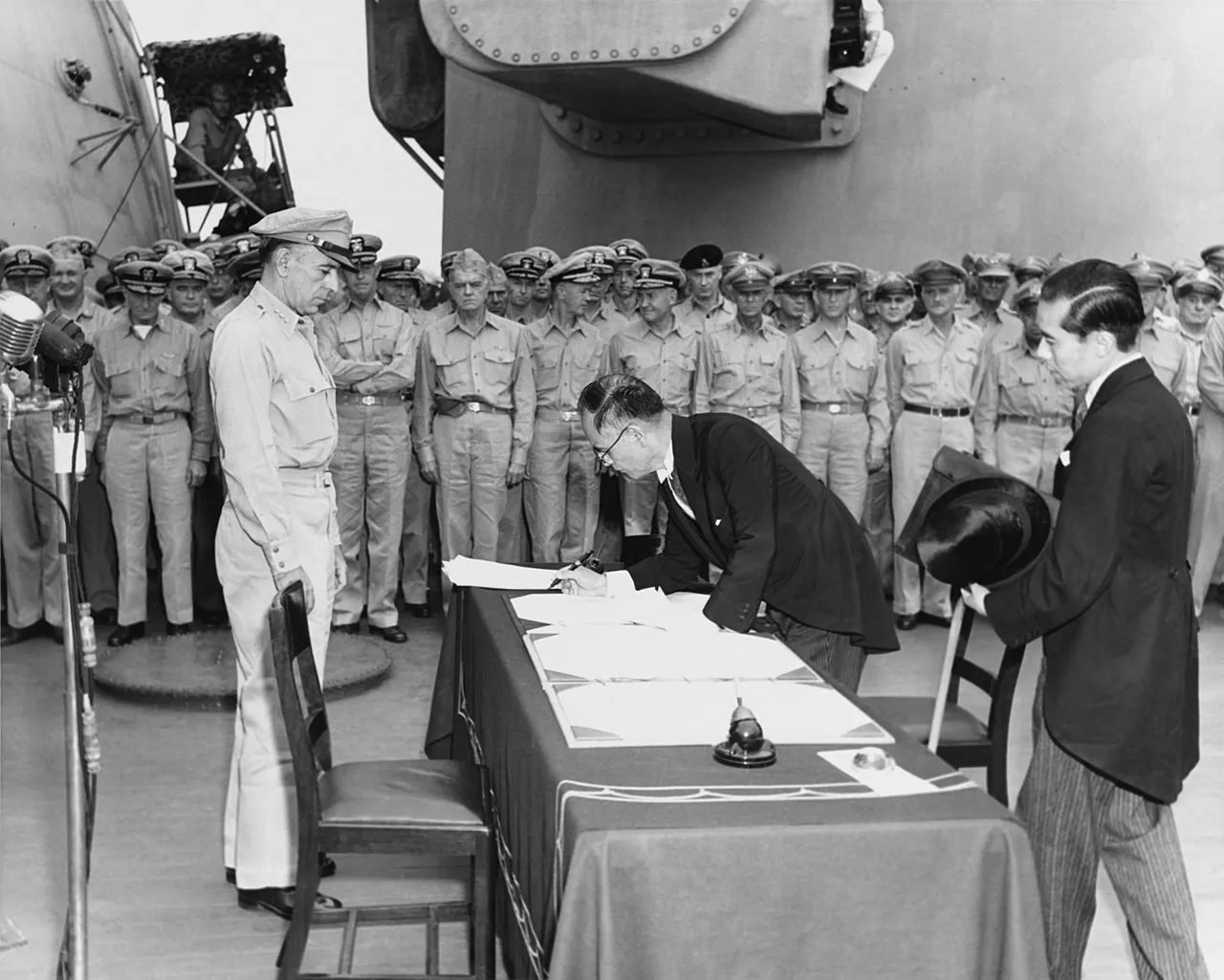 Japanese foreign affairs minister Mamoru Shigemitsu signs the Japanese Instrument of Surrender aboard the USS Missouri as American General Richard K. Sutherland watches, 2 September 1945.
Japanese foreign affairs minister Mamoru Shigemitsu signs the Japanese Instrument of Surrender aboard the USS Missouri as American General Richard K. Sutherland watches, 2 September 1945.
The surrender of the Empire of Japan in World War II was announced by Emperor Hirohito on 15 August and formally signed on 2 September 1945, bringing the war's hostilities to a close. By the end of July 1945, the Imperial Japanese Navy (IJN) had become incapable of conducting major operations and an Allied invasion of Japan was imminent. Together with the United Kingdom and China, the United States called for the unconditional surrender of the Japanese armed forces in the Potsdam Declaration on 26 July 1945—the alternative being "prompt and utter destruction". While publicly stating their intent to fight on to the bitter end, Japan's leaders (the Supreme Council for the Direction of the War, also known as the "Big Six") were privately making entreaties to the publicly neutral Soviet Union to mediate peace on terms more favorable to the Japanese. While maintaining a sufficient level of diplomatic engagement with the Japanese to give them the impression they might be willing to mediate, the Soviets were covertly preparing to attack Japanese forces in Manchuria and Korea (in addition to South Sakhalin and the Kuril Islands) in fulfillment of promises they had secretly made to the United States and the United Kingdom at the Tehran and Yalta Conferences.